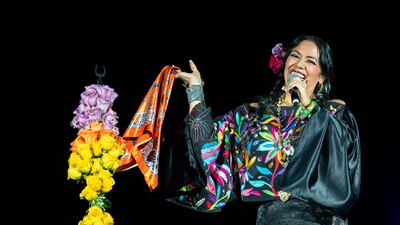Dubai's non-oil economy continued to grow in October, with business conditions registering the sharpest improvement in two years, boosted by a strong rebound in new orders and Expo 2020 reviving tourism.
The seasonally adjusted IHS Markit Dubai Purchasing Managers' Index surged to 54.5 in October, from 51.5 in September, the highest level since October 2019. A reading above 50 indicates economic expansion while one below points to a contraction.
"Dubai began the fourth quarter of the year in a strong position, with PMI data signalling the fastest rise in new orders for two years as Expo 2020 brought increased client demand and tourist numbers," David Owen, an IHS Markit economist, said. "The initial surge in sales contributed to a sharp expansion in activity, suggesting that the economy is well on the way to recovering from the pandemic."
More than three in four companies in Dubai expect Expo 2020 to benefit their business in the fourth quarter of 2021, according to a survey by the Dubai Chamber of Commerce and Industry. Business confidence in the emirate reached its third-highest level in 10 years as companies begin to feel the positive impact of the world's fair that began on October 1, the Business Leaders’ Outlook for Q4 2021 survey said.
Following a slight fall in September, new business volumes rose in October at the quickest growth rate since October 2019, according to the survey.
The recovery in tourism as flights resumed was a key factor behind the upturn, as visitor numbers surged amid the opening of the Expo 2020 in October 1, according to the companies surveyed.
Client orders both domestically and abroad increased, although the rise in export sales was the least marked for three months.
Firms' output expanded to strongest levels since July 2019 because of a sharp uplift in demand.
Growth accelerated across key sectors of Dubai's economy, including construction, travel, tourism and wholesale and retail, according to the survey.
The findings validate the trend in the hospitality industry. Hotels in Dubai recorded a surge in occupancy rates in September, boosted by the easing of travel restrictions and the countdown to Expo 2020 in October, according to hospitality data and analytics specialist STR. The average occupancy rate rose to 67.2 per cent in September, jumping 51 per cent compared to the same month in 2020. September's performance is also a month-on-month increase from occupancy rates of 58 per cent in August and 53.9 per cent in July.
The retail and wholesale sector recorded the biggest rise from September, according to the IHS Markit survey. Construction firms continued to see the strongest overall speed of recovery.
Despite the uptick in business conditions in October, the pace of employment was only marginal. Staff hiring was partly linked to a rise in backlogs of work, which was solid despite easing slightly from the previous month.
"With tourism reviving and capacity pressures growing, this will likely improve in the coming months," said Mr Owen.
Dubai-based firms' confidence in future output improved sharply in October, as the strong rebound in sales gave companies increased optimism that the economy would quickly recover from the Covid-19 pandemic.
Overall expectations were at their highest since March 2020, although they "remained weak compared to pre-Covid levels", according to the survey.








